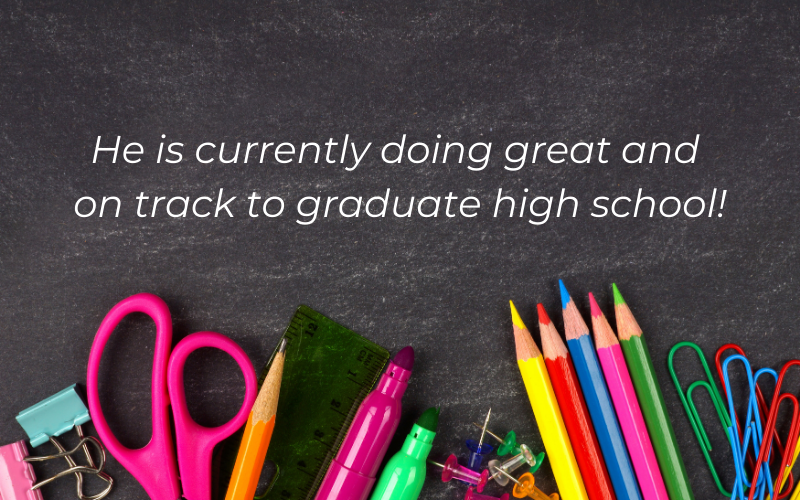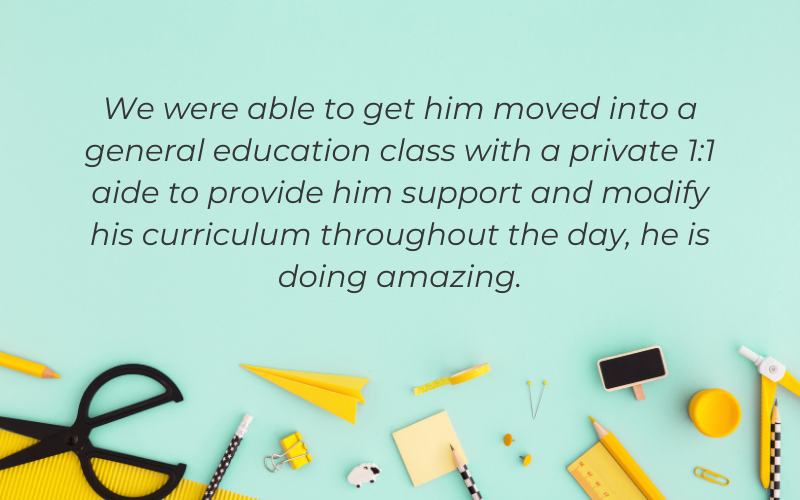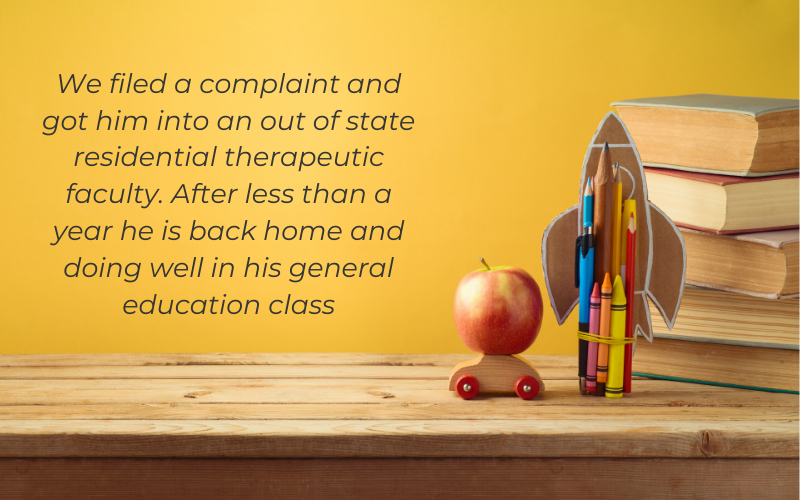Case Examples
We have helped thousands of students receive the education they are entitled to.
Case #1
A 12-year-old 7th grade student with dyslexia and ADHD was reading at the second grade level. Although he had an IEP, it failed to address his severe reading deficits. As he got older and realized how far behind he was from his peers, he became socially distant and depressed. We filed a case against the district and were successful in getting him to a private school that specializes in dyslexia and reading issues. He is currently doing great and on track to graduate high school!
Case #2
An 8-year-old boy with down syndrome had been placed by the district in a class for children who have severe behaviors, though he did not have any. He came home crying most days, would have marks and bruises from being hit in class, and often would refuse to go to school because he was scared of his classroom. We were able to get him moved into a general education class with a private 1:1 aide to provide him support and modify his curriculum throughout the day. He is doing amazing.
Case #3
A 13-year-old boy with depression and autism – both home and school, he began making threats to hurt himself and others. He was 51/50 by the police from school on multiple occasions over the school year, however, the school offered no changes to his IEP or support for the family. His doctors were recommending a higher level of care, like a residential treatment facility to address his needs; but the school refused to make and changes. We filed a complaint and got him into an out-of-state residential therapeutic faculty. After less than a year, he is back home and doing well in his general education class.
Case #4
An 8-year-old girl with autism who was also non-verbal. Over the school year, her behaviors at school became much worse; she would protest, tantrum, hit, kick, and elope from class. However, at home she was doing really well and did not have behaviors. The parents routinely tried to find out why their daughter was having behaviors at school but were told by the school it was just part of her autism. We were ablet to get a team of private assessors, a psychologist, speech language pathologist and behavioralist in the school to assess her needs. Following the assessments, it was found out that her inability to communicate her wants and needs (like I’m hungry, I need to go to the bathroom) were causing her to act out. At home, her parents could communicate just fine with her, so she did not have those behaviors. We were able to get a communication device for her at school with a 1:1 aide for support, and once she was able to use it successfully her behaviors stopped.
Contact Us





